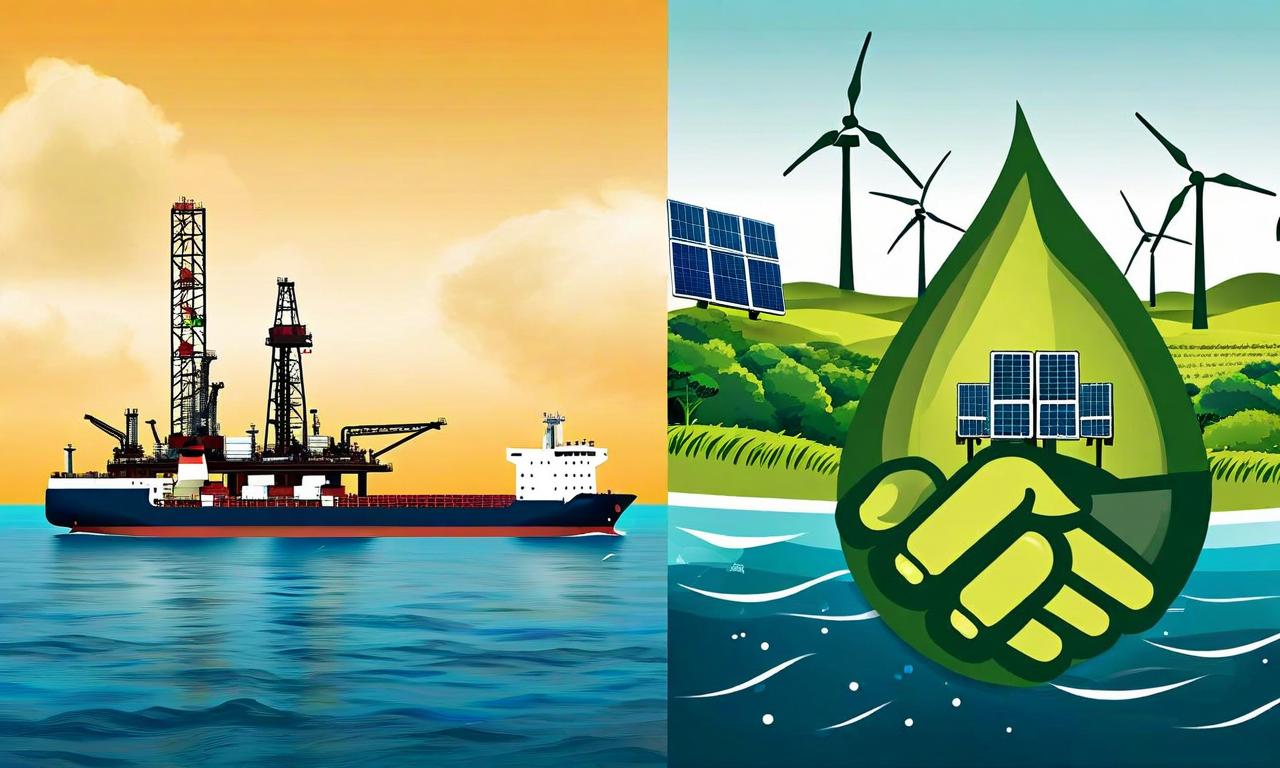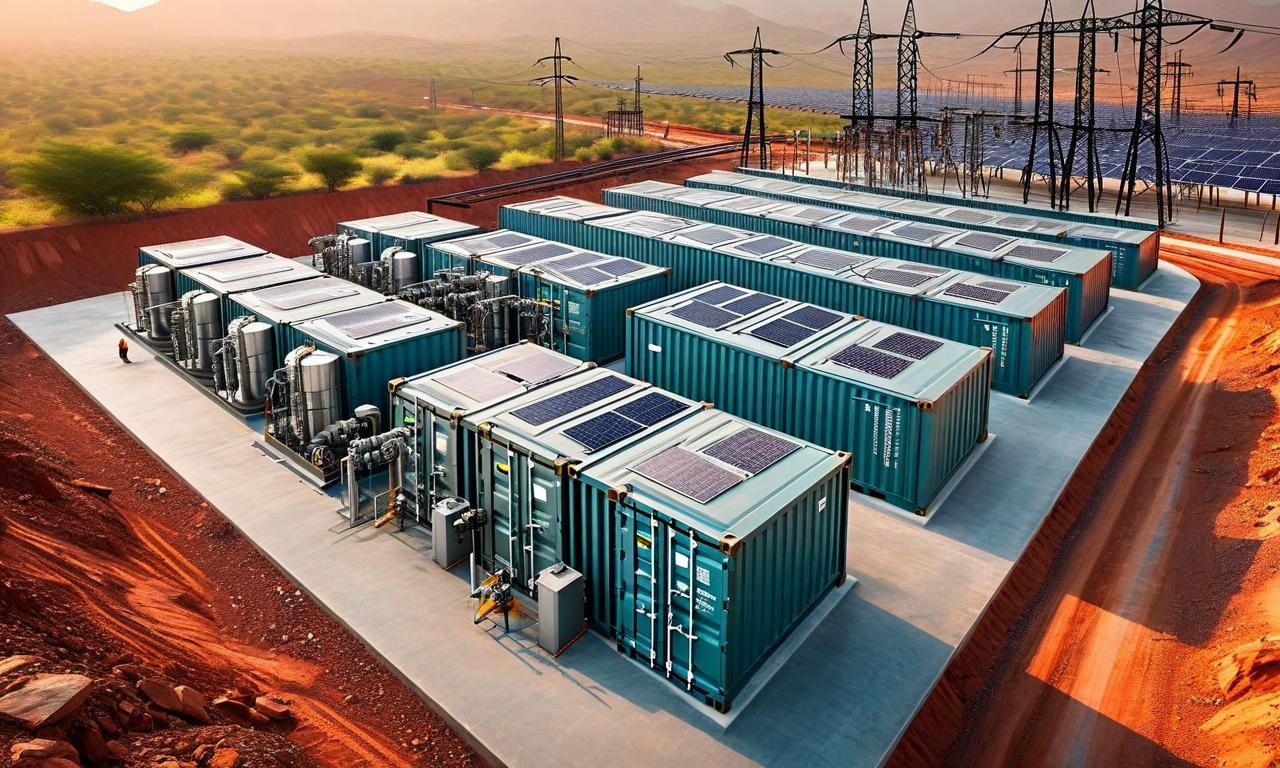Ghana Proposes Oil-for-Green Energy Exchange with India: A Strategic Partnership for Sustainable Development
Ghana's Energy Minister John Abdulai Jinapor has proposed a bilateral commodity exchange agreement with India. The plan involves increasing oil and petroleum product exports to India in exchange for cooperation in renewable energy development. Ghana aims to leverage its 1.1 billion barrels of proven oil reserves and 2.1 trillion cubic feet of gas reserves while seeking India's expertise to achieve its 10% renewable energy target by 2030. The deal could enhance cost efficiency in energy production and distribution for Ghana while providing India with a reliable oil source and opportunities in Africa's renewable energy market.

*this image is generated using AI for illustrative purposes only.
Ghana's Energy Minister, John Abdulai Jinapor, has unveiled an ambitious plan to boost oil and petroleum product exports to India in exchange for cooperation in renewable energy development. This strategic move aims to leverage Ghana's substantial oil reserves while accelerating its transition to green energy.
Key Points of the Proposed Deal
| Aspect | Details |
|---|---|
| Ghana's Oil Reserves | 1.1 billion barrels (proven) |
| Ghana's Gas Reserves | 2.1 trillion cubic feet |
| Renewable Energy Target | 10% by 2030 |
| Africa's Solar Potential | 60% of global share |
Bilateral Commodity Exchange Agreement
Ghana's proposal for a bilateral commodity exchange agreement with India is designed to achieve multiple objectives:
Increase Oil Exports: By ramping up oil and petroleum product exports to India, Ghana aims to strengthen its position as one of Africa's top oil producers.
Renewable Energy Cooperation: In return for increased oil exports, Ghana seeks India's expertise and investment in renewable energy technologies.
Green Energy Transition: The deal is expected to accelerate Ghana's progress towards its goal of achieving 10% renewable energy in its energy mix by 2030.
Existing Collaboration and Future Prospects
Minister Jinapor highlighted that Indian companies are already contributing to Ghana's energy sector:
- Manufacturing transformers and meters locally
- Creating job opportunities for Ghanaians
The Energy Minister emphasized that deepening the strategic partnership with India would:
- Enhance cost efficiency in energy production and distribution
- Accelerate Ghana's transition to green energy
Africa's Renewable Energy Potential
Jinapor underscored Africa's significant role in global renewable energy, particularly in solar power:
- Africa holds 60% of the world's solar potential
- This presents vast opportunities for collaboration and investment in sustainable energy projects
Implications for Both Nations
This proposed deal represents a win-win situation for both Ghana and India:
- For Ghana: Access to India's expertise in renewable technologies, advancing its green energy goals while monetizing its oil reserves.
- For India: Secure a reliable source of oil and petroleum products while expanding its influence in Africa's growing renewable energy market.
As this proposal unfolds, it could set a precedent for similar agreements between resource-rich African nations and countries with advanced renewable energy capabilities, potentially reshaping the landscape of global energy trade and cooperation.




























